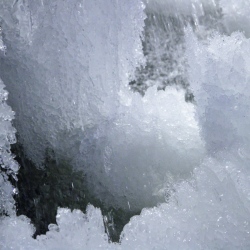
After drilling for two decades through more than two miles of antarctic ice, Russian scientists are on the verge of entering a vast, dark lake that hasn’t been touched by light for more than 20 million years.
This is the first direct contact with what scientists now know is a web of more than 200 subglacial lakes in Antarctica.
Scientists are enormously excited about what life-forms might be found there but are equally worried about contaminating the lake with drilling fluids and bacteria, and the potentially explosive “de-gassing” of a body of water that has especially high concentrations of oxygen and nitrogen.
If microbes are found in Vostok, the discovery would have particular significance for astrobiology, because Jupiter’s moon Europa and Saturn’s moon Enceladus have deep ice crusts that scientists think cover large amounts of liquid water warmed by sources other than the sun — just like Vostok.
